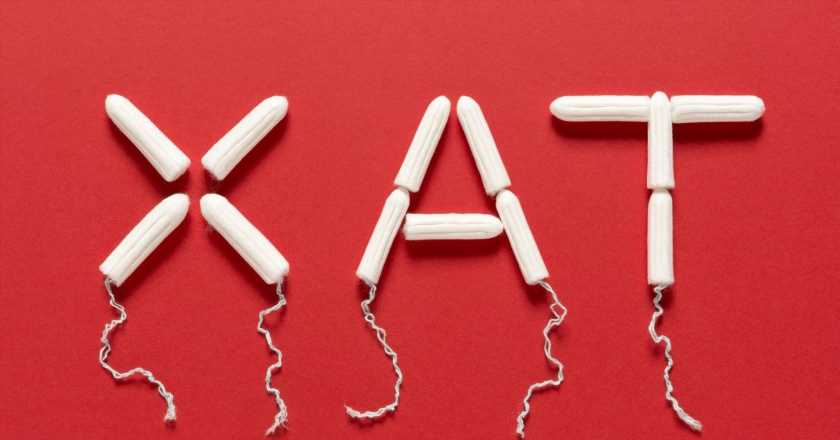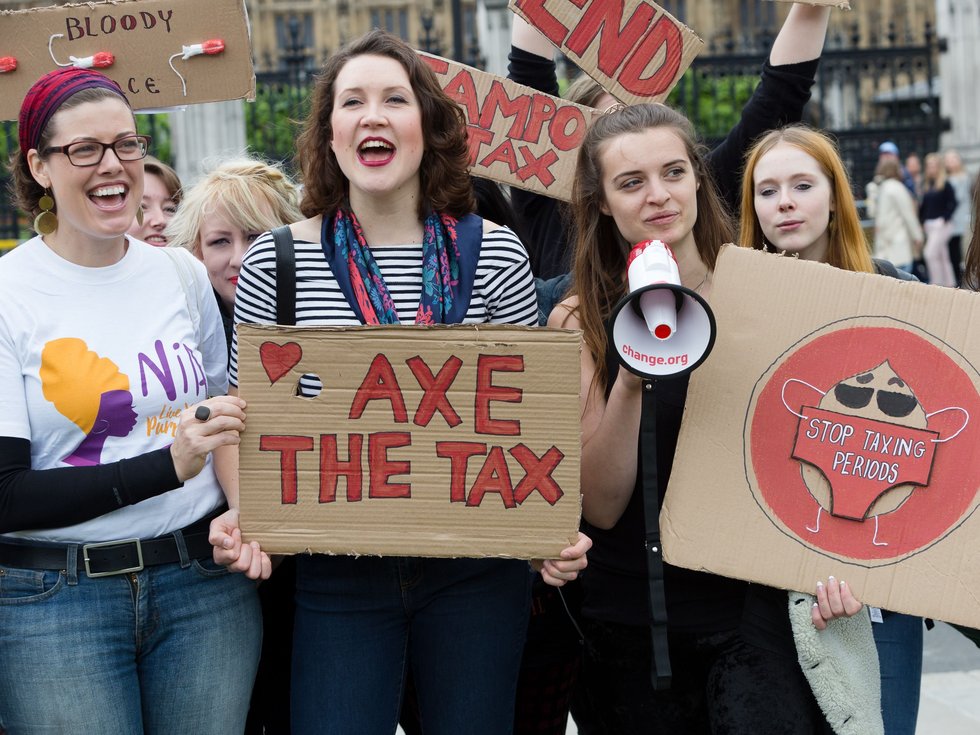
“The Tampon Tax Fund has come to an end, but the work is far from over”
11/23/2021Written by Laura Coryton
Now the government’s Tampon Tax Fund has come to an end, campaigner Laura Coryton explains why vital female-focused services and charities have an uncertain future now the fund has closed.
Last week, the government’s Tampon Tax Fund came to an end, having invested £90.25 million in female-focused charities over the past six years.
This fund was launched in response to my petition to end ‘tampon tax’, a 5% ‘luxury’ tax rate that was applied to all period products. It was finally axed in January 2021.
Here’s why this fund was established, how it is inherently problematic and why I’m asking the government to keep investing in female-focused charities beyond the axing of tampon tax.
It turns out, even the Tampon Tax Fund is rooted in Brexit. In 2016, in the throes of referendum-mania, then chancellor George Osborne announced his intention to end tampon tax as soon as legally possible.
This meant waiting a long time. As the European Union has authority over member states’ taxation policies, Osborne would need to wait for one of two things to take place before he could axe the tax: Brexit, or for new EU legislation to be introduced allowing any member state to end or lower tampon tax. The latter has since been agreed and is expected to come into effect in 2022.
To soften the blow of this painstaking waiting game, Osborne launched the Tampon Tax Fund. It was designed to invest the total amount HMRC raises through tampon tax (£15m annually) in female-focused charities and organisations. Essentially, the fund was introduced as a stopgap or peace offering until the tax could legally be scrapped.
Over the last six years, the fund has benefitted many charities and community organisations across the UK addressing crucial societal issues. Last week, 14 charities including Women in Sport, Tommy’s and Imkaan received the final round of Tampon Tax funding.
Such organisations have supported targets of grooming and sexual assault, researched gynaecological cancers, provided baby loss information and support and addressed key barriers facing female refugees. Few would argue these are unworthy of public funding.
Yet, inherent problems with the Tampon Tax Fund soon reared their head. In March 2017, the fund invested £250,000 in Life, an anti-abortion organisation, conflating charities designed to support women with those used to control them. This sparked debate about the intention of this fund, and whether its existence was really helping women.
Additionally, many feminist campaigners I’ve worked with over the years have boycotted this fund because they believe it sends a damaging message and is built upon a sexist assumption: that women should pay to tackle injustices that overwhelmingly impact women as if siloed from the rest of society.
I believe both can be true: this fund has genuinely made a significant difference to charities tackling society’s most pressing gender equality issues but at the same time, the funds have come from the wrong place.
These organisations should be funded by society as a whole, not just those who menstruate. Charities that save lives and tackle injustices should be fuelled by public funding to make the UK a more equal and just society for everyone.
So, where do we go from here?
The problems Tampon Tax Fund recipients set out to solve have far from disappeared. On the contrary, the pandemic has exacerbated gender inequality, violence against women and the economic implications of lockdown has disproportionately impacted women. For a multitude of reasons, these charities are needed even more now than when the fund was introduced in 2016.
The UK government said it was “committed to gender equality at every stage” in 2019. If this is still the case, then it should treat sexism like the crucial societal issue it is, rather than a charitable side project fuelled by those who pay tax on period products. It should continue to invest in these vital organisations beyond the axing of tampon tax.
In the long term, it will also save the government money to invest in these charities, as most provide services that would otherwise be expected of public bodies. For example, multiple Tampon Tax recipients have tackled domestic violence, such as Comic Relief and White Ribbon, the social and economic cost of which is approximately £66 billion each year.
Furthermore, many of the charities prevent problems from escalating to an extent that would negatively impact the public and the public purse. For example, Tommy’s Project was awarded funding this year to provide miscarriage and pregnancy care and information to disadvantaged and underrepresented women across England. This will relieve pressure from the NHS, which would otherwise be expected to provide this care.
Similarly, The Central British Fund for World Jewish Relief was awarded for its ‘STEP forward’ project, which will address key barriers faced by female refugees. It aims to ensure as many refugees as possible gain independence, access health care and move towards employment. All of this will relieve the state of providing the same support while encouraging employment that will benefit the economy.
There’s clearly a lot to gain from investing in female-focused charities. Moreover, there’s little to lose. The Tampon Tax Fund’s £15m accounted for a mere 0.0018% of the £800 billion HMRC raises each year in taxes – a small price to pay for furthering gender equality.
While this is a small number for the government, it is extremely meaningful to the charities supported. Many genuinely female-focused recipients that tackle sexism are small to medium-sized organisations and their future depends on funds such as this. The axing of this fund may jeopardise their ability to continue their important work.
It took seven years of petitioning, protesting, lobbying, writing and hard campaigning to end tampon tax, and many generations called for the same decades before me. It feels devastating and counterintuitive for all this effort to cause a reduction in funds for female-focused charities.
This funding shouldn’t depend on menstruators. These charities deserve consistent government funding because they work to improve society as a whole. Only then will the issues they tackle (including domestic violence) be recognised and understood as societal issues, rather than siloed as the problem of women alone.
If you agree, please sign my new petition, designed in partnership with the Eve Appeal and Sevenoaks School.
Images: Getty
Source: Read Full Article


